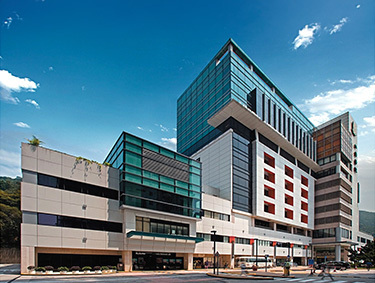What is Candida auris?
Candida is a family of fungi (yeasts) that live on the skin and inside the human body such as the mouth and gut. Candida auris (C.auris) was first identified from external canal discharge of a patient in Japan in 2009. C.auris is resistant to some of the commonly used antifungal medications. People can be colonized with C.auris without symptoms. However, some colonized patients may develop C.auris infection such as wound infection, urinary tract infection or even bloodstream infection
How is C.auris transmitted?
C.auris can be transmitted through contact with contaminated surfaces or equipment, or from physical contact with a person who is infected or colonized. Meticulous attention to infection control measures, including good hand hygiene and effective environmental hygiene, is important to prevent the spread of infection.
How to decrease duration of carriage?
People can remain colonized with C.auris for months. To shorten duration of carriage and decrease the risk of C.auris infection, 3-month decolonization therapy of using antimicrobial body wash and probiotics would be provided for patients who are colonized with C.auris subject to case-by-case assessment.
(1) Antimicrobial body wash
Antimicrobial body wash e.g. Manuka honey bath / Chlorhexidine skin cleanser has antimicrobial activity against pathogenic microorganisms including bacteria, fungi and viruses.
- Direction for use: Antimicrobial body wash can be used 2 to 3 times per week as a substitute for body wash to reduce the density of skin colonization with C.auris.
- Contraindication: Stop using and ask a doctor if significant irritation or sensitization develops.
(2) Probiotics
Probiotics work by competitive exclusion of pathogenic microorganisms, production of anti-microorganism substances and modulation of the immune system. Several probiotic yeasts can effectively reduce Candida colonization of the gut. In general, probiotics are considered safe for healthy people.
- Direction for use:
- Lactobacillus rhamnosus GG Capsule 80mg: Take 1 capsule per day for 3 months
- Saccharomyces boulardii Powder 250mg: Take 1 sachet per day for 3 months (do not pour on or mixed with very cold or very hot liquids or food)
- Side effects: Epigastric disturbances in rare cases. Very rare side effects include penetration of Saccharomyces boulardii yeast into the blood and constipation.
- Special precautions: Probiotics should not be administrated with systematic or oral anti-fungal agents and should be consumed at least 1 hour apart from a dose of oral antibiotics.
- Contraindication: Some persons may not be suitable to use probiotics, including those who are severely immunocompromised or having a central venous catheter. Please discuss with your doctors before consuming probiotics.
Produced by Union Hospital
The above information is for reference only, please enquire your doctor for details
Our Hospital reserves the RIGHT to amend any information in this leaflet without prior notification
Ref:IL(ICC-03e) V1
Effective since 01-12-2024


